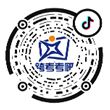2013年考研英语阅读理解精读篇(49)_跨考网
He emerged, all of a sudden, in 1957: the most explosive new poetic talent of the English post-war era. Poetry specialised, at that moment, in the wry chronicling of the everyday. The poetry of Yorkshire-born Ted Hughes, first published in a book called “The Hawk in the Rain” when he was 27, was unlike anything written by his immediate predecessors. Driven by an almost Jacobean rhetoric, it had a visionary fervour. Its most eye-catching characteristic was Hughes's ability to get beneath the skins of animals: foxes, otters, pigs. These animals were the real thing all right, but they were also armorial devices—symbols of the countryside and lifeblood of the earth in which they were rooted. It gave his work a raw, primal stink.
It was not only England that thought so either. Hughes's book was also published in America, where it won the Galbraith prize, a major literary award. But then, in 1963, Sylvia Plath, a young American poet whom he had first met at Cambridge University in 1956, and who became his wife in the summer of that year, committed suicide. Hughes was vilified for long after that, especially by feminists in America. In 1998, the year he died, Hughes broke his own self-imposed public silence about their relationship in a book of loose-weave poems called “Birthday Letters”. In this new and exhilarating collection of real letters, Hughes returns to the issue of his first wife's death, which he calls his “big and unmanageable event”. He felt his talent muffled by the perpetual eavesdropping upon his every move. Not until he decided to publish his own account of their relationship did the burden begin to lighten.
The analysis is raw, pained and ruthlessly self-aware. For all the moral torment, the writing itself has the same rush and vigour that possessed Hughes's early poetry. Some books of letters serve as a personalised historical chronicle. Poets' letters are seldom like that, and Hughes's are no exception. His are about a life of literary engagement: almost all of them include some musing on the state or the nature of writing, both Hughes's own or other people's. The trajectory of Hughes's literary career had him moving from obscurity to fame, and then, in the eyes of many, to life-long notoriety. These letters are filled with his wrestling with the consequences of being the part-private, part-public creature that he became, desperate to devote himself to his writing, and yet subject to endless invasions of his privacy.
Hughes is an absorbing and intricate commentator upon his own poetry, even when he is standing back from it and good-humouredly condemning himself for “its fantasticalia, its pretticisms and its infinite verballifications”. He also believed, from first to last, that poetry had a special place in the education of children. “What kids need”, he wrote in a 1988 letter to the secretary of state for education in the Conservative government, “is a headfull [sic] of songs that are not songs but blocks of refined and achieved and exemplary language.” When that happens, children have “the guardian angel installed behind the tongue”. Lucky readers, big or small.
1.The poetry of Hughes’s forerunners is characteristic of ______
[A] its natural, crude flavor.
[B] its distorted depiction of people’s daily life.
[C] its penetrating sight.
[D] its fantastical enthusiasm.
2.The word “vilified” (Line 4, Paragraph 2)most probably means _____
[A] tortured
[B] harassed
[C] scolded
[D] tormented
3.According to the third paragraph, Hughes’s collection of letters are _____
[A] the exact reason responsible for both his fame and notoriety.
[B] personalized description of his double identity as a public and a private figure.
[C] reflections of his struggle between his literary devotion and the reality.
[D] his meditation and exploration on the literary world and the essence of literature.
4. From the letters, we may find the cause of Hughes’s internal struggle is _____
[A] his eager and unsatisfied passion for literature.
[B] that he is a part-private, part-public creature.
[C] that he is constrained by the fear of his privacy being exposed to the criticism of the public.
[D] the moral torment exerted by himself.
5. By “lucky readers” in the last sentence, the author means_____
[A] children who are imparted with the beauty and wisdom of poetry.
[B] children who have a headfull of fantastic and verbally perfect songs.
[C] children who own blocks of refined and achieved and exemplary language.
[D] children who are believed to have the guardian angel installed behind the tongue.
文章分析见下页。
2022考研初复试已经接近尾声,考研学子全面进入2023届备考,跨考为23考研的考生准备了10大课包全程准备、全年复习备考计划、目标院校专业辅导、全真复试模拟练习和全程针对性指导;2023考研的小伙伴针也已经开始择校和复习了,跨考考研畅学5.0版本全新升级,无论你在校在家都可以更自如的完成你的考研复习,暑假集训营带来了院校专业初步选择,明确方向;考研备考全年规划,核心知识点入门;个性化制定备考方案,助你赢在起跑线,早出发一点离成功就更近一点!
| 考研院校专业选择和考研复习计划 | |||
| 2023备考学习 | 2023线上线下随时学习 | 34所自划线院校考研复试分数线汇总 | |
| 2022考研复试最全信息整理 | 全国各招生院校考研复试分数线汇总 | ||
| 2023全日制封闭训练 | 全国各招生院校考研调剂信息汇总 | ||
| 2023考研先知 | 考研考试科目有哪些? | 如何正确看待考研分数线? | |
| 不同院校相同专业如何选择更适合自己的 | 从就业说考研如何择专业? | ||
| 手把手教你如何选专业? | 高校研究生教育各学科门类排行榜 | ||
相关推荐
跨考考研课程
| 班型 | 定向班型 | 开班时间 | 高定班 | 标准班 | 课程介绍 | 咨询 |
| 秋季集训 | 冲刺班 | 9.10-12.20 | 168000 | 24800起 | 小班面授+专业课1对1+专业课定向辅导+协议加强课程(高定班)+专属规划答疑(高定班)+精细化答疑+复试资源(高定班)+复试课包(高定班)+复试指导(高定班)+复试班主任1v1服务(高定班)+复试面授密训(高定班)+复试1v1(高定班) | |
| 2023集训畅学 | 非定向(政英班/数政英班) | 每月20日 | 22800起(协议班) | 13800起 | 先行阶在线课程+基础阶在线课程+强化阶在线课程+真题阶在线课程+冲刺阶在线课程+专业课针对性一对一课程+班主任全程督学服务+全程规划体系+全程测试体系+全程精细化答疑+择校择专业能力定位体系+全年关键环节指导体系+初试加强课+初试专属服务+复试全科标准班服务 |



